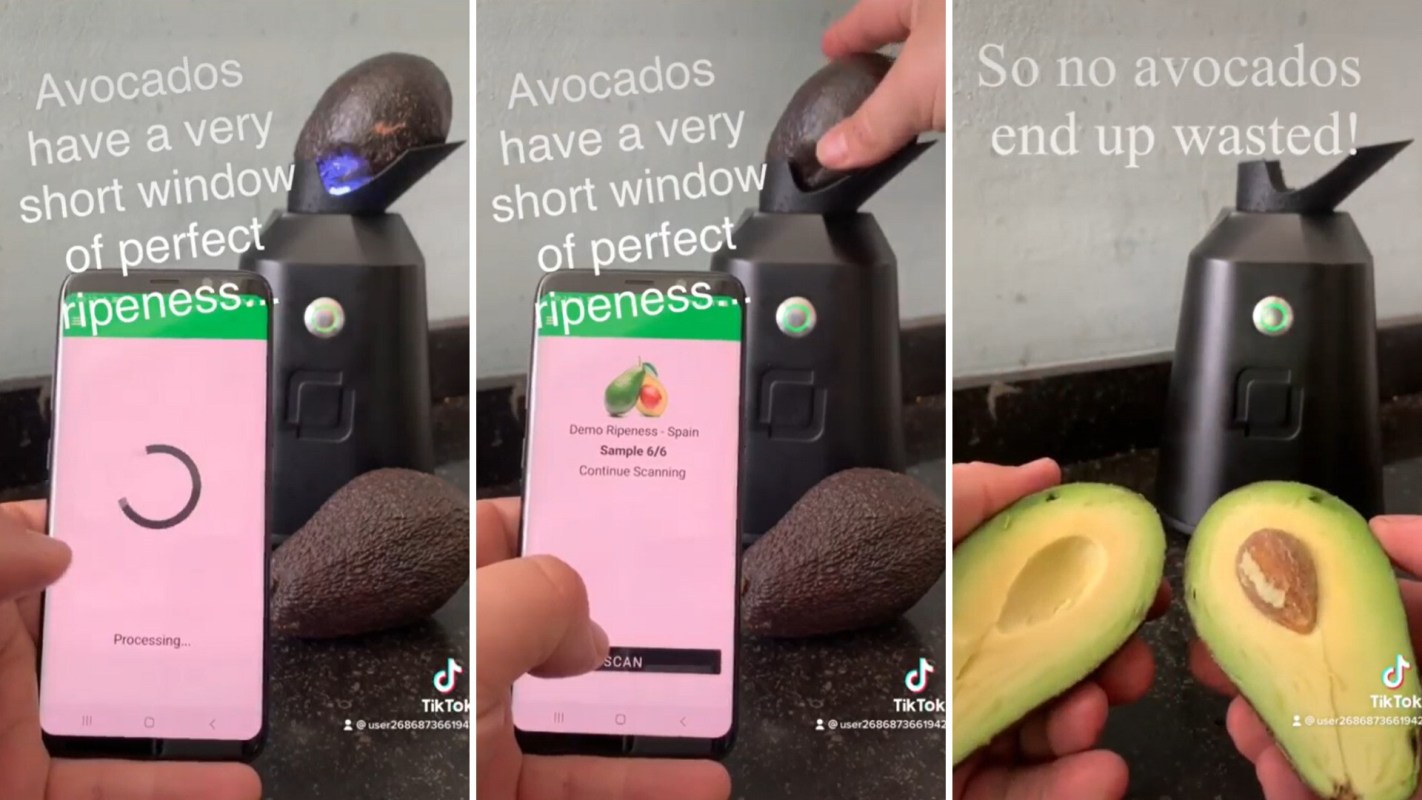We probably don't have to tell you how annoying it is to find that the fruits and veggies you just bought have gone bad in the fridge or on the counter. OneThird, a food-tech startup, hopes to fight this, as well as other sources of food waste, with its high-tech handheld scanners, AI cameras, and a whole lot of data.
OneThird
OneThird, formed in 2019, aims to make "anyone a shelf life prediction expert" to prevent the loss and waste of food.
The company's name even stems from its goal, which refers to the estimation that one-third of all food produced worldwide ends up lost or wasted.
In order to meet these aspirations, the startup gathered and studied data from each point in produce's path to the table.
OneThird makes use of a few products, including handheld scanners that can look inside produce with non-damaging waves and predict shelf life within one day of accuracy. The scanners connect to a mobile app that provides quick results and recommendations on food freshness. And artificially intelligent cameras monitor products to make sure everything stays as fresh as possible.
All of this data can be shared throughout the supply chain and combined with information about batches, environments, and more to create an accurate picture and prediction of a food's freshness.
Companies can set personal benchmarks of freshness that batches must meet, which makes this system useful at multiple stops in the supply chain. Growers, distributors, and retailers can all reduce food waste which, in turn, can lower costs and increase sustainability.
Food waste and loss
According to the U.N., each year around 14% of all food is lost somewhere between harvest and retail, and an additional 17% of food is wasted after being bought.
That stacks up to tons of wasted food — enough to feed around two billion people, the World Food Programme estimates.
Rates of hunger have been rising since 2014, and food waste, along with conflict, gender inequality, and extreme weather, is one of the root causes. What's more, the USDA says that our changing climate poses significant threats to food security around the world and in our communities, as some conflict and extreme weather can both be linked back to human-caused environmental damage.
Food waste also releases harmful gas pollution that speeds up environmental damage. The World Food Programme shares that if wasted food were its own country, it would be the third largest producer of heat-trapping carbon pollution, which is causing our planet to overheat.
The USDA puts it another way: In the United States alone, food loss and waste represent the gas pollution equal to 42 coal-fired power plants. And that estimate doesn't even account for the methane gas pollution created by food rotting in landfills.
What can I do about food waste?
Although OneThird only makes products for growers, distributors, and retailers, the average person can still take steps to reduce their own individual food waste, which can also save money.
Small actions like planning out your meals, only buying what you need, buying locally when possible, storing food wisely, and picking up ugly fruits and vegetables (especially for smoothies) can really add up for the environment and your wallet.
Considering the average American household wastes $1,500 in food every year, that could mean a lot of money back in your bank account.
Practicing proper storing techniques for your produce — including berries, avocados, celery, carrots, and more — to extend their shelf life can also go a long way.
And finally, instead of throwing produce in the trash, consider composting to ensure nutrients from expired produce or other organic matter are returned to the Earth.
Join our free newsletter for easy tips to save more, waste less, and help yourself while helping the planet.








